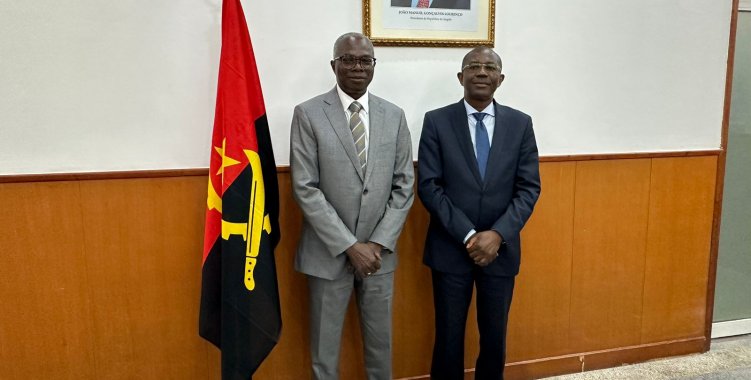Speaking at a meeting with the African Development Bank (AfDB) special envoy for Africa, Timothy Olalekan Williams, held last week at the headquarters of the Ministry of Agriculture and Forestry, the Secretary of State indicated that the Government intends for the country to become self-sufficient in corn production by 2030, harvesting approximately 10 million tons of the cereal per year.
Quoted in a statement from the Ministry of Agriculture and Forestry, to which VerAngola had access, the minister said that the issues discussed at the meeting "aim to guarantee food and nutritional security", having thus said "that by 2030, the aim is for Angola to be self-sufficient in corn production".
On the occasion, João da Cunha also said that the State also wants to see the cultivated area grow to seven million hectares in the coming years.
"The State intends, taking into account the challenges of achieving food security, to increase the cultivated area from the current five million hectares to seven million hectares in the coming years", the statement reads.
According to the Secretary of State for Forests, "the projects supported by the AfDB in Angola are aimed at peasant families (family farming) who represent around 83 percent of the productive sector".
The minister also said that the Government has been creating "instruments to promote the cultivation of rice, corn, soybeans, wheat, the production of Arabica and Robusta coffee, as well as cocoa (...), with the projection of environmental sustainability, revenue collection and the challenge of planting more than one billion trees".
Timothy Olalekan Williams said that "Angola is aligned with the objectives set out at the Dakar summit", which took place in January last year in Senegal, under the motto "Feeding Africa: Food Sovereignty and Resilience".
He also said that he had taken "very good note of the concerns raised and that these will be duly addressed by the AfDB team".
According to the statement, the visit by the AfDB official aimed to assess the "implementation of ongoing projects in the agriculture sector, to analyse the challenges faced by the Angolan State in the sector and to identify the areas of intervention and assistance from the AfDB in the process of developing Angolan agriculture".
The meeting also served to discuss issues such as "the problems of fertilizers, seeds, digitalization and mechanisation in the agricultural sector, the possibility of building agro-processing infrastructures along the Lobito Corridor, the empowerment of youth in agriculture, and the involvement of the private sector in these projects", the statement said, adding that the two officials also discussed the possibility of creating a project evaluation unit.







